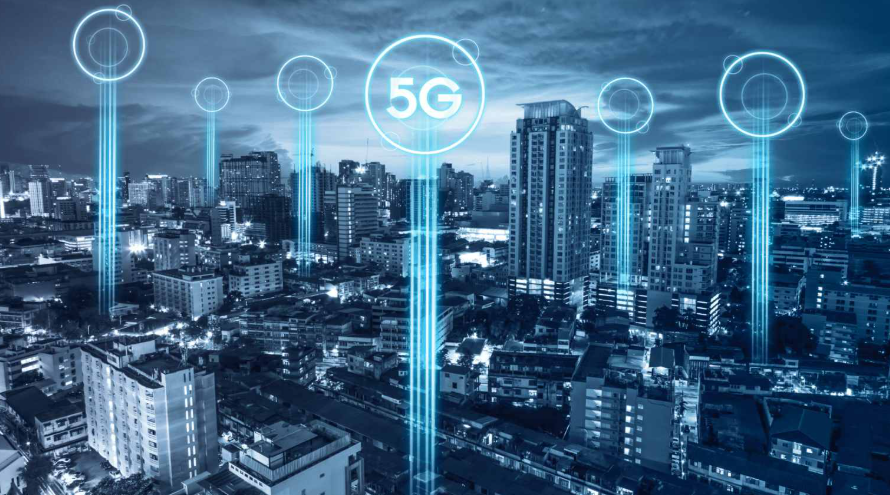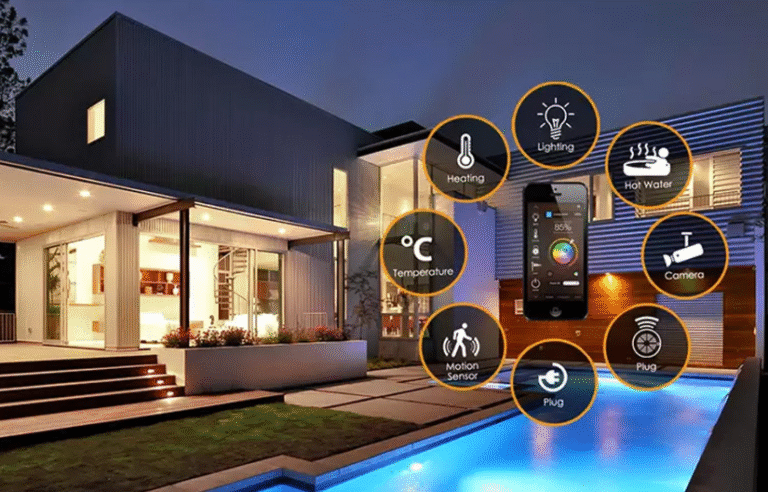5G Networks: What They Are and How They Will Change Our Connected World

The advent of 5G networks promises to revolutionize the way we connect, communicate, and experience technology. With each new generation of mobile networks, we’ve seen a significant leap in connectivity, starting with 1G, progressing through 2G, 3G, and 4G, and now, the future is centered around 5G. But what exactly is 5G, and how will it shape our lives? In this article, we’ll explore the intricacies of 5G networks and discuss how they will transform our connected world in the near future.
1. Introduction to 5G Networks
The fifth generation of mobile networks, or 5G, is poised to redefine how we interact with technology on a daily basis. From ultra-fast download speeds to seamless connections in smart cities, 5G is the key to unlocking a new era of connectivity. Unlike previous generations, 5G will not only enhance our communication devices but also enable entirely new applications, such as autonomous vehicles and remote surgery.
2. What is 5G?
5G stands for the fifth generation of mobile networks, a successor to the previous 4G (LTE) standard. 5G aims to provide faster speeds, lower latency, and increased capacity, allowing users to enjoy more seamless and powerful experiences across a wide range of devices. It is designed to work in conjunction with existing 4G networks, offering better coverage and performance.
3. Key Differences Between 5G and 4G
While 4G brought improvements over 3G in terms of data speed and connectivity, 5G represents an entirely new leap forward. Some key differences include:
- Speed: 5G is expected to deliver download speeds of up to 100 times faster than 4G, enabling ultra-fast file downloads and streaming experiences.
- Latency: 5G reduces latency to as low as one millisecond, compared to 30-50 milliseconds in 4G. This minimal delay is crucial for real-time applications like remote surgery and autonomous driving.
- Capacity: 5G can support millions of devices per square kilometer, making it ideal for IoT and densely populated urban areas.
- Connectivity: 5G will be more reliable in terms of connectivity, with fewer dropped calls and interruptions.
4. How 5G Works
5G operates on new frequencies of the electromagnetic spectrum, including higher frequency bands, also known as millimeter waves. These frequencies enable faster data transmission but come with their own challenges, such as shorter ranges and more susceptibility to interference. To address this, 5G networks rely on advanced technologies like Massive MIMO (Multiple Input, Multiple Output), which uses multiple antennas to increase data capacity, and small cell networks, which help boost signal coverage in densely populated areas.
5. The Evolution of Mobile Networks
The evolution of mobile networks has been driven by the growing demand for faster, more reliable connections. Early mobile networks (1G) were used for basic voice communication. With 2G, text messaging and basic internet browsing became possible. 3G introduced faster internet speeds, enabling mobile video streaming. 4G allowed for high-definition video, mobile gaming, and large file downloads, while 5G takes things to a whole new level with faster speeds, low latency, and increased capacity for new, advanced applications.
6. The Key Benefits of 5G Networks
Faster Speeds and Increased Bandwidth
One of the most anticipated benefits of 5G is its speed. It is expected to deliver speeds of up to 20 Gbps, which is orders of magnitude faster than current 4G networks. This will make activities like downloading large files, streaming ultra-high-definition video, and playing high-quality mobile games more seamless than ever before.
Lower Latency and Real-Time Connectivity
Latency, or the time it takes for data to travel between devices, will be significantly reduced with 5G. Latency as low as one millisecond will enable real-time applications, such as virtual reality (VR), augmented reality (AR), and telemedicine, to function without any noticeable delay. This will enable real-time collaboration and control in fields like healthcare, education, and gaming.
Enhanced Capacity and Scalability
With 5G, mobile networks can support a significantly higher number of devices. This is crucial as the Internet of Things (IoT) grows and the number of connected devices in homes, businesses, and cities continues to increase. 5G networks can handle up to one million devices per square kilometer, making it ideal for smart cities, connected factories, and large-scale IoT deployments.
7. Applications of 5G
Smart Cities and Urban Development
5G is expected to be the backbone of smart cities, where everything from traffic lights to waste management will be connected to the internet. The increased bandwidth and reduced latency of 5G will allow for better real-time monitoring and control of city infrastructure, improving everything from traffic flow to emergency response times.
Healthcare Advancements
In healthcare, 5G will enable more accurate remote monitoring of patients, virtual doctor consultations, and real-time data transmission from medical devices. With its low latency, 5G will also support advanced surgical procedures using robotic arms controlled remotely.
Autonomous Vehicles
Self-driving cars depend on fast, reliable, and real-time data exchange with other vehicles and infrastructure. 5G’s ultra-low latency and high bandwidth are crucial for making autonomous vehicles safe and efficient. These vehicles will rely on constant communication to make split-second decisions while driving.
Industrial Automation and IoT
The manufacturing industry will benefit significantly from 5G, with more efficient automation, predictive maintenance, and smart factories. 5G’s ability to connect millions of devices will enable real-time monitoring and control, increasing productivity and reducing costs.
8. Challenges of Deploying 5G Networks
While 5G promises exciting benefits, its deployment comes with several challenges:
- Infrastructure Requirements: The deployment of 5G networks requires significant investment in new infrastructure, including small cells, fiber optic cables, and advanced antennas.
- Security Concerns: As 5G networks become more integral to industries like healthcare and transportation, ensuring cybersecurity will become increasingly important.
- Spectrum Availability and Regulation: 5G requires access to new radio frequency spectrum bands, and the allocation of these frequencies is subject to regulation by governments worldwide.
9. 5G and the Future of Mobile Devices
As 5G networks roll out, mobile devices like smartphones and tablets will experience enhanced performance. Not only will users benefit from faster internet speeds, but they will also experience new types of immersive experiences, such as AR and VR applications, that require low latency and high bandwidth.
10. How 5G Will Revolutionize Internet of Things (IoT)
5G is expected to be the catalyst for the next wave of IoT innovation. With its ability to connect millions of devices simultaneously, 5G will power smart homes, connected cities, and autonomous industries. The ability to manage massive amounts of data from sensors and devices will unlock new possibilities for automation, monitoring, and analysis.
11. 5G and Smart Cities
Smart cities will rely on 5G to provide better urban services, reduce energy consumption, and improve public safety. For example, connected traffic lights will use real-time data to manage traffic flow, while smart streetlights will adjust based on the surrounding environment to save energy.
12. Global Race for 5G
Countries around the world are racing to deploy 5G networks, as the technology will have significant economic implications. Nations that successfully implement 5G infrastructure will be positioned to lead in emerging industries such as autonomous vehicles, healthcare, and manufacturing.
13. 5G in the Developing World
While 5G is predominantly associated with developed nations, its potential benefits for developing countries cannot be overlooked. With 5G, these countries can leapfrog traditional broadband technologies and build more robust, reliable communication infrastructure, improving education, healthcare, and economic development.
14. The Impact of 5G on Industries
Healthcare
5G’s high bandwidth and low latency will improve telemedicine, allowing for remote consultations, monitoring, and surgeries in real time. Medical devices will be more connected, providing doctors with more accurate and timely data.
Entertainment and Media
For the entertainment industry, 5G will enable ultra-high-definition video streaming, immersive AR and VR experiences, and faster content delivery, revolutionizing the way consumers enjoy media.
Manufacturing and Industry 4.0
With 5G, manufacturers will benefit from real-time monitoring and control of their operations, improving efficiency and reducing downtime through predictive maintenance.
15. What to Expect from 5G in the Coming Years
In the coming years, we can expect 5G to continue evolving, with improved coverage, faster speeds, and new applications. The true potential of 5G will be realized as more industries and devices become connected to the network.
16. Conclusion
5G is more than just an upgrade in mobile technology; it represents a transformative shift in how we connect, communicate, and innovate. Its potential to power smart cities, autonomous vehicles, IoT, and more will change the way we live and work. As the rollout of 5G accelerates, it will bring immense benefits across industries and regions, revolutionizing the connected world.
17. FAQs
1. What is the main advantage of 5G over 4G?
5G provides faster speeds, lower latency, and greater capacity compared to 4G, allowing for enhanced performance in applications such as virtual reality, autonomous driving, and IoT.
2. When will 5G be available worldwide?
The rollout of 5G networks is happening gradually across the globe, with widespread availability expected by the mid-2020s.
3. How will 5G impact mobile phones?
5G will enable faster internet speeds, better video streaming, and new applications like AR and VR, improving the overall mobile experience.
4. What are the challenges of 5G deployment?
Challenges include infrastructure requirements, spectrum allocation, and security concerns.
5. Can 5G be used for gaming?
Yes, 5G will enable faster, lag-free gaming experiences with high-quality graphics and real-time multiplayer interactions.
6. Will 5G change the way we use the internet?
Yes, 5G will revolutionize internet use by enabling faster speeds, lower latency, and more reliable connections for both consumers and businesses.






